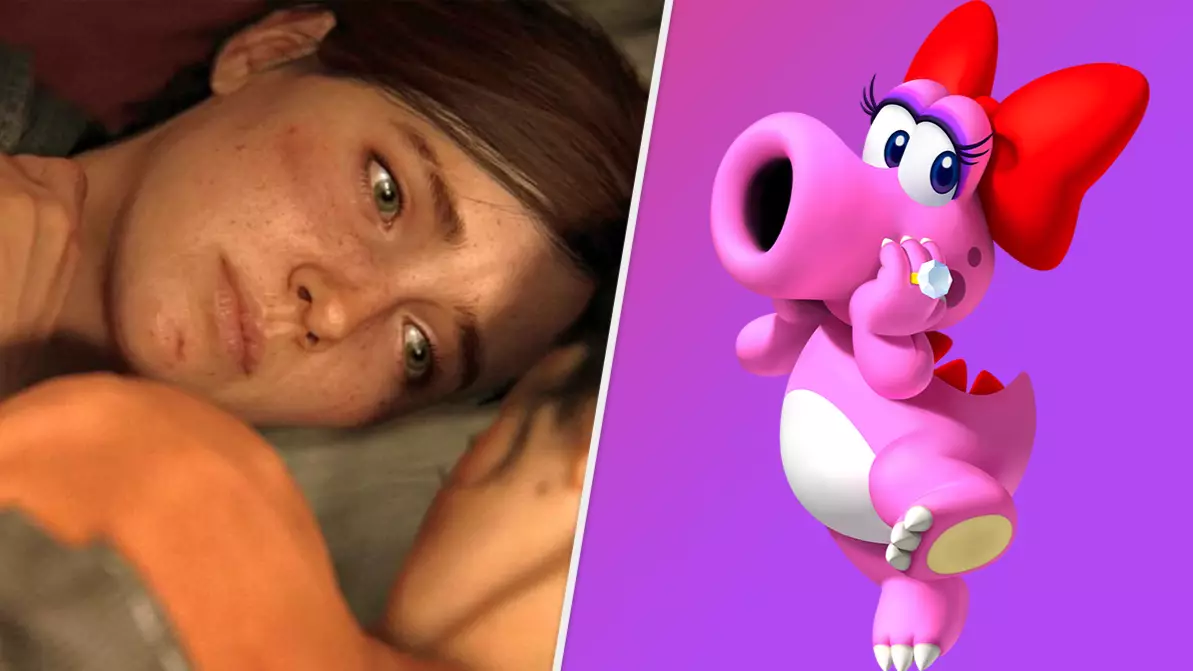
According to a new study by the (gambling, so, be aware) site MrQ, video gaming is the best popular entertainment medium for representation of LGBTQ+ identities. There's a caveat with that, though, as there so often is. While gaming does top the list, our entertainment choices are still failing to be properly representative of the LGBTQ+ community.
Average representation of LGBTQ+ individuals in video games comes out at 1.9% - which is slightly lower than the most recent available figure of people in the UK identifying as lesbian, gay or bisexual, which is 2%. It's far behind the figure for the lesbian, gay, bisexual and transgender population in the US, which was measured at 4.5% in 2017.
There's been widespread fan speculation that Rivet in Ratchet & Clank: Rift Apart is a transgender character - check out some gameplay from the forthcoming PPS5 exclusive, below...
MrQ looked at a number of hugely popular TV, movie and gaming franchises, as well as novels, to arrive at an average percentage for each medium. The site found that there are precisely no LGBTQ+ characters in the Fast and Furious movie series, a whopping two in the Marvel Cinematic Universe, and none in the Harry Potter films. Overall, movies came out at a figure of 0.1%. Pretty poor showing, popular cinema.
Advert
On television, the overall figure came out at 0.8%, assessing series like Parks & Recreation (0.75%), Stranger Things (0.26%), and The Boys (2.11%). In popular novels, there was zero LGBTQ+ representation in the Twilight books, The Da Vinci Code, and Fifty Shades of Grey, for an overall percentage of 1%.
In video games, the most LGBTQ+ inclusive franchise was found to be Super Mario Bros., with Super Mario Galaxy featuring four LGBTQ+ characters. Famously, Birdo is known as gaming's first-ever transgender character, with documentation for Super Mario Bros. 2 identifying her as male - but Nintendo's use of her has been criticised in the gaming press as a poor, offensively stereotypical caricature of what a corporation might think a transgender character should look and act like.
More recently, The Last of Us games have put an LGBTQ+ character front and centre of the experience, with Ellie confirmed as a lesbian by developers Naughty Dog and being shown to have a meaningful relationship with another woman in the events of The Last of Us Part II.
While MrQ's study may not be the most forensic, it highlights the importance of keeping track of representation in games. It can seem like we're making huge strides, but when you look at the numbers it's clear we still have a long way to go compared to the real world. In film, the Annenberg Inclusion Initiative has been tracking diversity and inclusion for years, providing stats for activists to hold production companies to account, and push for change - and it'd be great to see something similar for gaming.
Featured Image Credit: Sony Interactive Entertainment, NintendoTopics: Movies, Super Mario, TV, The Last Of Us